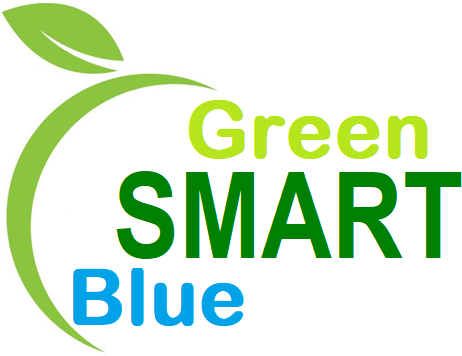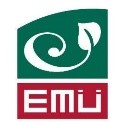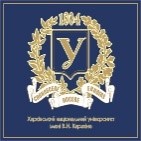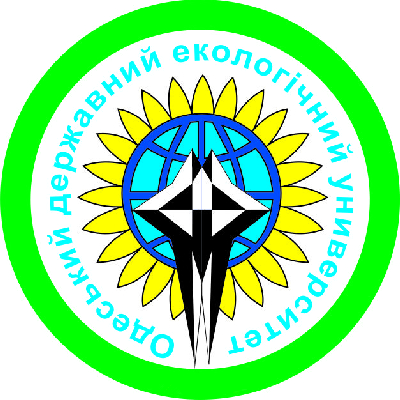
Open Science Conference ‘Smart Green & Smart Blue: exploring nature-based solutions and ecosystem services approaches in environmental management, planning & policy’ took place in Lviv on 7-9 November 2019.
A conference took stock of smart green and smart blue solutions for urban and territorial sustainability, with a particular focus on transfer and applicability of policy, management and technology innovation.
The conference was organised by Institute of Ecology of the Carpathians of the National Academy of Sciences, Ukraine under the project Erasmus+ CBHE INTENSE – Integrated Doctoral Program for Environmental Policy, Management and Technology (http://intense.network/) with support from Lviv City Council, and in cooperation with Estonian University of Life Sciences, Kharkiv V.N. Karazin National University and Odessa State Environmental University.
The latest conference updates, abstract submission and registration procedures are available from the conference web site.
Background and objectives
The twenty-first century is an urban age. While in 1800, only 2 percent of the world’s population lived in urban areas, it was already 15 percent in 1900, 47 percent in 2000, and it will very likely exceed the 75 percent ‘milestone’ by 2050. Although cities occupy just 3 percent of the world’s surface, they already account for more than 75 percent of global resource consumption and greenhouse gas emissions (UNEP 2013). In the face of global change and fundamental environmental, economic and social challenges in an increasingly urban world, sustainable development and resilience have become strategic issues for cities in Europe and beyond. Although cities are the locations where most of the (un)sustainability issues are rooted, they are also seen as an appropriate governance level to provide solutions and to tackle fundamental sustainability challenges.
Harnessing the forces of nature and ecosystems to deliver goods and services demanded by society, thus working with nature, rather than against it in an ‘engineered’ but participatory way in cities started to attract policy, research and investor attention as an alternative to grey/technical infrastructure. Nature-Based Solutions (NbS) are seen to hold significant promise in responding to these challenges and delivering urban developments that are both resilient and sustainable. They have potential to provide simultaneous economic, social and environmental benefits, such as managing flooding, reducing heat stress, absorbing air pollution, enhancing biodiversity, improving mental and physical health, as well as creating accessible urban space for recreation. Yet there is a substantial gap between the promise of NbS and their uptake. In 2017 and 2018, several research projects were launched with the aims to focus on the conditions within which diverse urban nature-based solutions are emerging, as well as on their innovation trajectories, patterns of governance, distinct forms of participation, regime-niche interaction and interplay, social and economic implications, paying particular attention to the factors, processes, mechanisms and tools that contribute to their success and systemic integration. The goal of the conference is to support urban and peri-urban sustainable livelihoods through the promotion of European expertise in the development and implementation of nature-base solutions (NbS) for smart cities (SC). More specifically, the Conference addresses the following areas:
- Urban regeneration through nature-based solutions
- Nature-based solutions for improving well-being in urban areas
- Green and blue infrastructure in physical planning and landscape architecture
- Multi-functional nature-based watershed management and ecosystem restoration
- Nature-based solutions for increasing the sustainability of the use of matter and energy
- Nature-based solutions for enhancing the insurance value of ecosystems
- Increasing carbon sequestration through nature-based solutions
- Green (including biobased, circular etc) economy for cities and territorial resilience
- Integration of cultural values and ecosystem services in planning and environmental management
Keynote speakers
Raimonds Ernšteins (University of Latvia), Yaroslav Henyk (Ukrainian National Forestry University), Attila Katona (Central European University, Austria/Hungary), Viktar Kireyeu (St.-Petersburg State University, Russia), Oksana Maryskevych (Institute of Ecology of the Carpathians, Ukraine), Hans-Peter Nachtnebel (University of Natural Resources and Life Sciences, Austria), Thị Vân Hà Nguyễn (Ho Chi Mihn City University for Natural Resources and Environment, Vietnam), Altansukh Ochir (National University of Mongolia), Kalev Sepp (Estonian University of Life Sciences, Estonia), Volodymyr Zhyk (Lviv Polytechnic National University, Ukraine)
Call for Sessions & Papers
We are calling for paper proposals addressing the conference theme, where relevant, in a broader international context, or based on local case studies.
We welcome proposals for individual paper presentations which will be clustered in sessions of related research questions by the conference organization. Proposals with an abstract of max. 400 words can be submitted via the online submission system available from the site.
The call for sessions and papers is open until October 15, 2019. All submissions will be reviewed by the conference organizers. The decision on acceptance will be communicated by October 22, 2019.
Practical Information
The conference registration fee is EUR 50 for the participants coming from OECD countries, and free for the participants from non-OECD countries. The registration fee includes the conference program and access to conference e-materials, access to all the sessions and coffee breaks. Conference excursions and the conference dinner will be charged extra.
Participants will have to cover their own travel and accommodation costs.
The conference venue is the City Hall of Lviv.
Nowadays Lviv is a vibrant and trendy place and an emerging top city break destination, and travelling to Minsk, with its large international airport, became easier than ever. Tourist and hotel infrastructure received a major upgrade during the preparations to the European soccer championship of 2012, and its development is continuing.
Conference Steering & Organising Committee
Mykola Kozlovsky, Institute of Ecology of the Carpathians of the National Academy of Sciences, Ukraine (the conference co-chair), Kalev Sepp, Estonian University of Life Sciences (the conference co-chair); Sergiy Stepanenko, Odessa State Environmental University, Ukraine (conference co-chair); Raimonds Ernšteins, University of Latvia, Latvia; Attila Katona, Central European University, Austria/Hungary; Oksana Maryskevych, Institute of Ecology of the Carpathians of the National Academy of Sciences, Ukraine; Anton Shkaruba, Estonian University of Life Sciences, Iryna Shpakivska, Institute of Ecology of the Carpathians of the National Academy of Sciences, Ukraine; Hanna Titenko, Kharkiv V.N.Karazin National University, Ukraine







